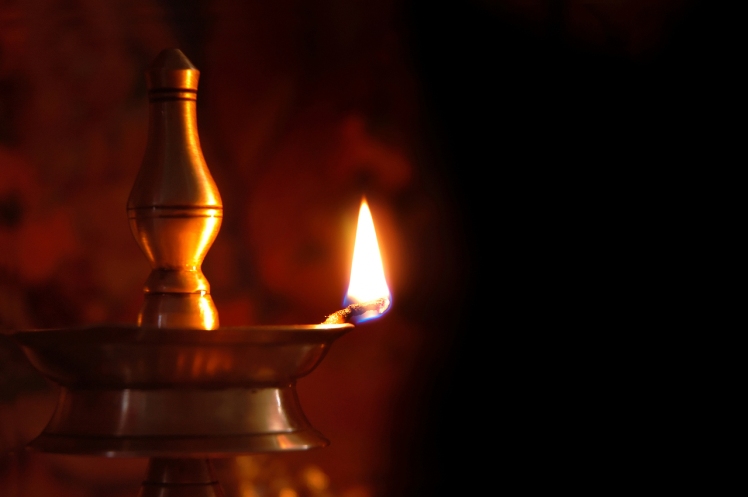Diwali ~ The Festival of ((( Light )))
Diwali – or Deepavali, the “festival of light” – is an annual Indian festival celebrated each autumn. It is by far the biggest and brightest festival in my ancestral land of India. Diwali is as important to Indians as Christmas is to the west. The occasion literally illumines the entire nation with its Divine brilliance!
Diwali originated as a harvest festival that signified the final harvest of the year before winter. The festival, which coincides with the Vedic New Year, celebrates new beginnings and the victory of truth over untruth.
Diwali is traditionally celebrated by Hindus, Jains, and Sikhs to honour various historical events, stories and myths – yet they all symbolize the victory of light over dark, love over fear, Truth over ignorance, good over evil – and hope over despair. Ultimately – they honour and celebrate unity over separation.
The festival gets its name from the row (avali) of clay lamps (deepa) that Indians light outside their homes on Diwali night, to embody the inner light that protects us from all forms of darkness (fear and separation).
The Yoga, Vedanta and Samkhya schools denote that there is something beyond the physical body and mind which is infinite and eternal called Satya (Truth/Pure Awareness). Diwali’s commemoration of the victory of light over dark refers to the light of higher or deeper knowledge that dispels all separation – the ignorance that veils one’s true nature, not as the body and mind, but as the unchanging, limitless and Supreme Reality. With this awakening comes compassion and the awareness of the oneness of all phenomenon.

The festival arrangements and ceremonies typically take place over five days with the main festival night of Diwali meeting with the darkest, new moon night of the Vedic Lunisolar month of Kartika.
On the eve of Diwali people clean and decorate their homes and offices. On Diwali night Indians dress up in new clothes or their best outfit, light diyas (lamps and candles) both inside and outside their home, and participate in family puja (ritual and prayer) typically to Lakshmi – the goddess of abundance, prosperity, grace, and inner beauty. Lakshmi wanders the Earth looking for homes where she will be welcomed. People open their doors and windows and light lamps to invite Lakshmi in. Following pujja, fireworks take place, and then a family feast is enjoyed including mithai (sweets). An exchange of gifts among family members and close friends follows.
On the night of Diwali, light your altar and place lit diyas in your windows sills, chant to Lakshmi (Om Shreem Maha Lakshmiyei Namaha x 108), then sit quietly, close your eyes, withdraw the senses – and concentrate on the Divine light that you are. Honour this recognition and give thanks.
This article was originally published for Salt Spring Malas.
